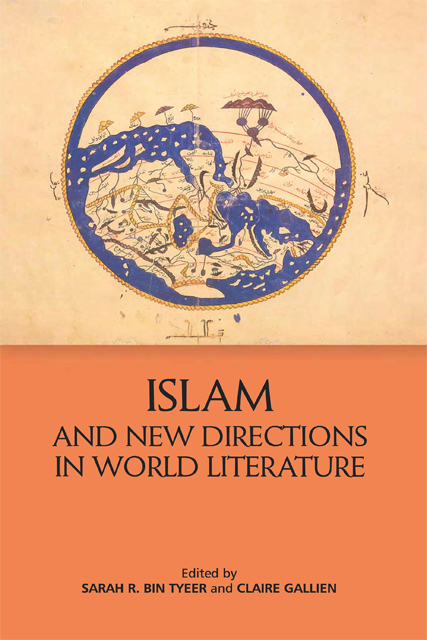9 - Where is World Literature?
Published online by Cambridge University Press: 14 July 2023
Summary
You know this journey is not toward the heavens –
Towards Mars,
This eternal bloodsucker –-
Or towards Venus
This horrid widow-whore wolf
Who knows no sorrow
Who used to toast her ominous drink with Hafez and Khayyam,
And dance wildly like a gypsy girl?
And now drinks with MacNeice or Nima –
And tomorrow will drink to whoever comes after us –
It is not towards them.
Mehdi Akhavan-e Sales, ‘Chavoshi’I would like to begin this chapter by sharing a memory. A few years after I finished my doctoral degree at the University of Pennsylvania in 1984, I went down to Philadelphia to have lunch with the late George Makdisi (1920–2002), the eminent scholar of the social and intellectual history of Islam and Christianity with whom I had the rare privilege of working as a graduate student. There were two towering minds on our campus in the late 1970s and early 1980 (I am sure there were more but I was particularly interested in these two) with whom I was closely affiliated: Philip Rieff and George Makdisi, a Freudian cultural sociologist and an intellectual historian, respectively, who very much shaped the contours of my own critical thinking. While Rieff put a Freudian twist to my sociological imagination, Makdisi taught me how to tease out literary humanism from the domineering Islamic scholasticism.
George and I sat at a table in our Faculty Club at the corner of Locust Walk and 36th Street, picked up our food, ordered our drinks and began to catch up. I had finished my postdoctoral at Harvard and had started teaching at Columbia. My youthful essay, ‘Symbiosis of Religious and Political Authorities in Islam’ (1987) was still very much on George’s mind and he was eager to talk about my arguments. We talked and reminisced from here and there until we came to talk about his most recent book, The Rise of Humanism in Classical Islam and the Christian West: With Special Reference to Scholasticism (1990), a book I deeply admired and closely read after its sister volume, The Rise of Colleges: Institutions of Learning in Islam and the West (1981), on which he was working while I was his student and published it when I had graduated.
- Type
- Chapter
- Information
- Islam and New Directions in World Literature , pp. 253 - 268Publisher: Edinburgh University PressPrint publication year: 2022



